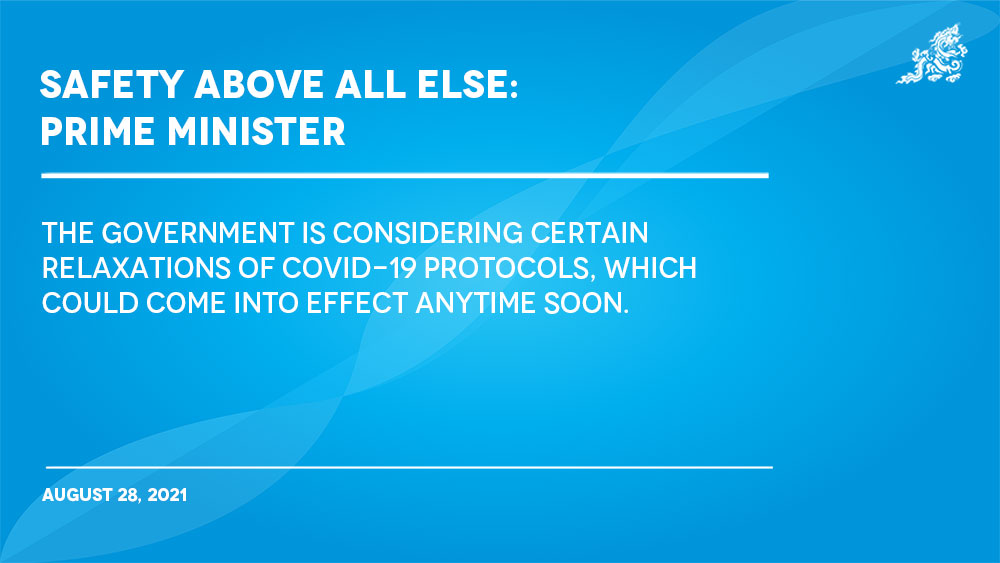Younten Tshedup
The government is considering certain relaxations of Covid-19 protocols, which could come into effect anytime soon.
Prime Minister Dr Lotay Tshering said that with no new cases from the communities for the last two weeks, and a successful vaccination campaign, which is still underway, the government was hopeful to make some relaxations.
In light of these accomplishments, Lyonchhen said that the national task force members and health experts also agreed that there could be certain relaxations in protocols such as the business operation timings at night, and the 21-day mandatory quarantine for those entering the country from abroad.
Lyonchhen said that potential relaxations would be considered after a thorough review in consultation with the experts and task force members. “We’re considering if businesses could operate until 10pm or if we can bring down the 21-day quarantine period to 14 days. For now, we are working on this and any decision would be shared as soon as possible.”
However, the Prime Minister said that the Covid-19 pandemic has put a lot of restrictions on things that were indifferently allowed before. “We understand people are not happy with these restrictions and we want to lift them, too,” he said, adding that any relaxation at this point of time would come at a price.
Without any restriction and protocols, Lyonchhen explained that if an outbreak is reported in a particular community, the number of infected people would multiply exponentially, as people would start gathering in large numbers.
Another public expectation after the successful vaccination campaign is the lifting of the 7-day mandatory quarantine period for those travelling from high-risk areas to the lower risk dzongkhags.
Many have expressed the inconveniences the protocol has brought about, especially for the business operators and for those requiring medical emergencies.
However, the Prime Minister expressed the complications and threats that would be associated with the lifting of the 7-day quarantine period at this time. “The basis of having a quarantine system is to monitor an individual if he or she is infected with the virus and to keep them away from the mass until proven negative.”
Lyonchhen said that the government could not lift the protocol despite multiple requests from the public in the interest of the public themselves. He explained that in absence of the protocol, if an infected person from a high-risk area entered a lower risk area, the disease would spread exponentially within a day.
Lyonchhen said that prior to the pandemic, every day, some 4,000 to 5,000 people travelled between Phuentsholing and Thimphu. “Without the protocol, if there was an outbreak in Phuentsholing in the morning, by afternoon or evening, the outbreak would have spread in Thimphu as well,” he said, adding that frequent lockdowns across the country would become a common thing then.
Despite the demand to lift the protocol, there are a few who think the requirement of the 7-day protocol as key to preventing the disease from spreading across the country.
“It is this 7-day protocol that has kept the rest of the country running despite an extensive and prolonged outbreak in the south,” said one.
Others say that many people who have travelled to other dzongkhags from Phuentsholing and Samtse have turned positive while in the quarantine. “If it wasn’t for the quarantine, the rest of the country would also be reporting local outbreaks today. This 7-day quarantine is our last line of defence.”
Lyonchhen said that although the initial idea was to relax some of the protocols as soon as 80 percent of the entire population was fully vaccinated, this was not feasible anymore. This, he said, was considering the situation across the world and the aggressiveness of the Delta variant of the virus.
“Many countries are now stepping up their protocols and some are even exploring the need to vaccinate their population with a third dose of the vaccine,” Lyonchhen said. “This is all because of the threat the Covid-19 pandemic still posed to humanity.”
The Prime Minister added that despite all the inconveniences, the protocols in Bhutan were working. “Many are of the belief that having all these protocols benefit the health ministry or the government. This is untrue. In fact, the government is at a loss because all quarantine expenditures are borne by the government.”


